Truth and Reconciliation Summit: Words of Wisdom
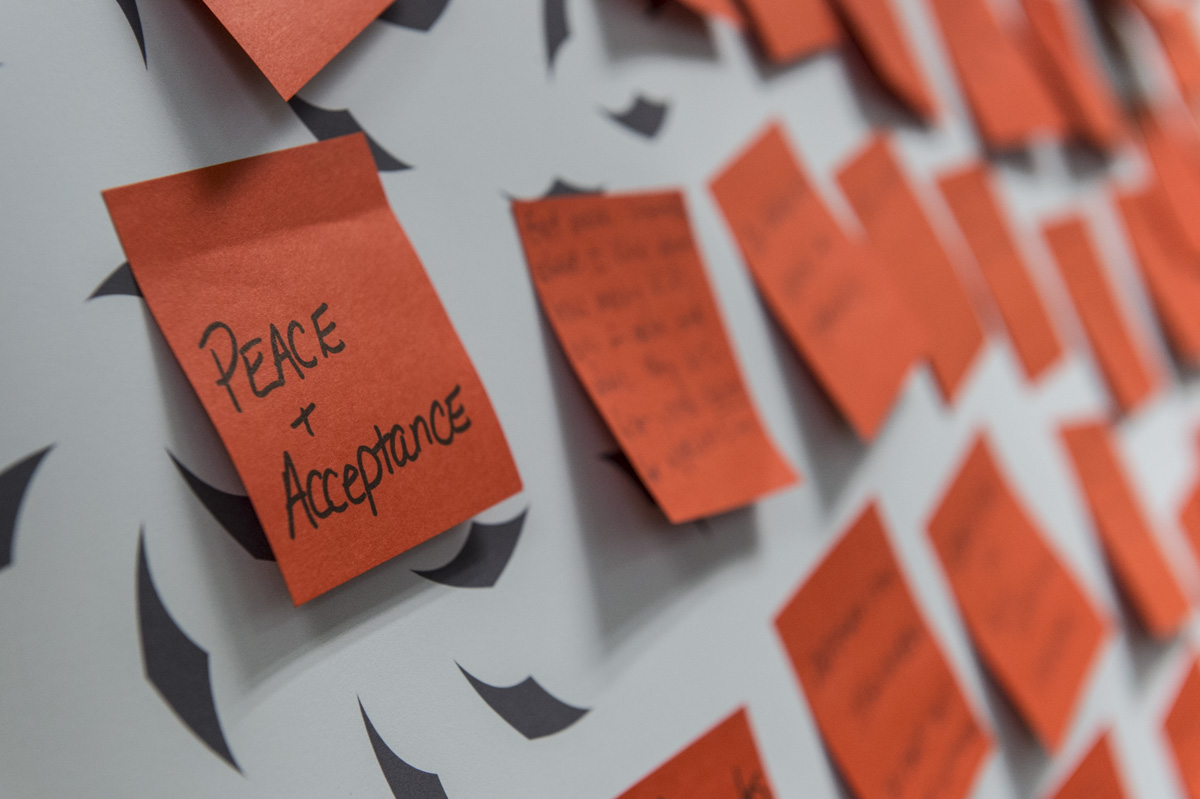
On October 29, Banff Centre for Arts and Creativity hosted a Truth and Reconciliation Summit, organized by the Indigenous Leadership department. Hundreds of participants from all over the Bow Valley and Alberta, as well as speakers and panellists involved in Truth and Reconciliation on a larger scale, gathered in Banff to reflect on the truth of Canada's role in residential schools and other forms of oppression, and make plans to bring about reconciliation in their communities and in Canada.
The keynote speeches were also live-streamed across Canada for anyone who wasn't able to participate in person. If you weren't able to watch the speakers live, you can watch the video here.
Each participant was asked to commit to an action on the day of the summit, which they wrote on sticky notes and attached to a wall for everyone to read. The following are quotes from throughout the course of the day, from speakers and participants alike, about what reconciliation means to them and how they—and you—can help bring it to life.
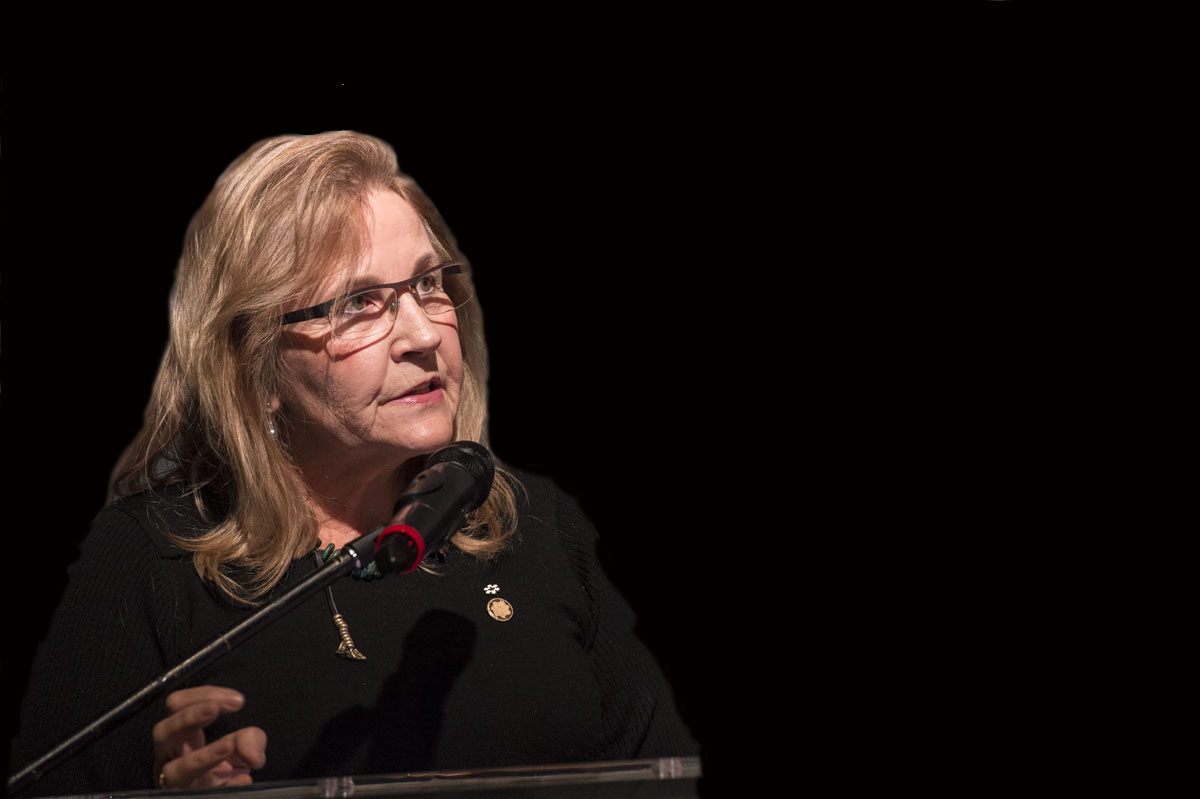
Dr. Marie Wilson, Truth and Reconciliation Commissioner
Dr. Marie Wilson, Truth and Reconciliation Commissioner
Banff Centre Truth and Reconciliation Summit Speaker
"Sitting in corners wringing hands and wondering what to do is not going to advance anything, including yourself. Read the calls to action, and as you go through them one at a time ask yourself: do I belong in this call?"
Kathleen Mahoney, Chief Negotiator, Residential schools settlement
Banff Centre Truth and Reconciliation Summit Speaker
"It’s time for the rest of us Canadians to understand these stories and understand what it means to be a Canadian. Because I do believe, since the report of the Truth and Reconciliation Commission and then the apology of the Prime Minister, that Canadians are experiencing a sort of existential crisis—who are we? What is this country? We’ve been told who we are and it doesn’t fit with these descriptors."
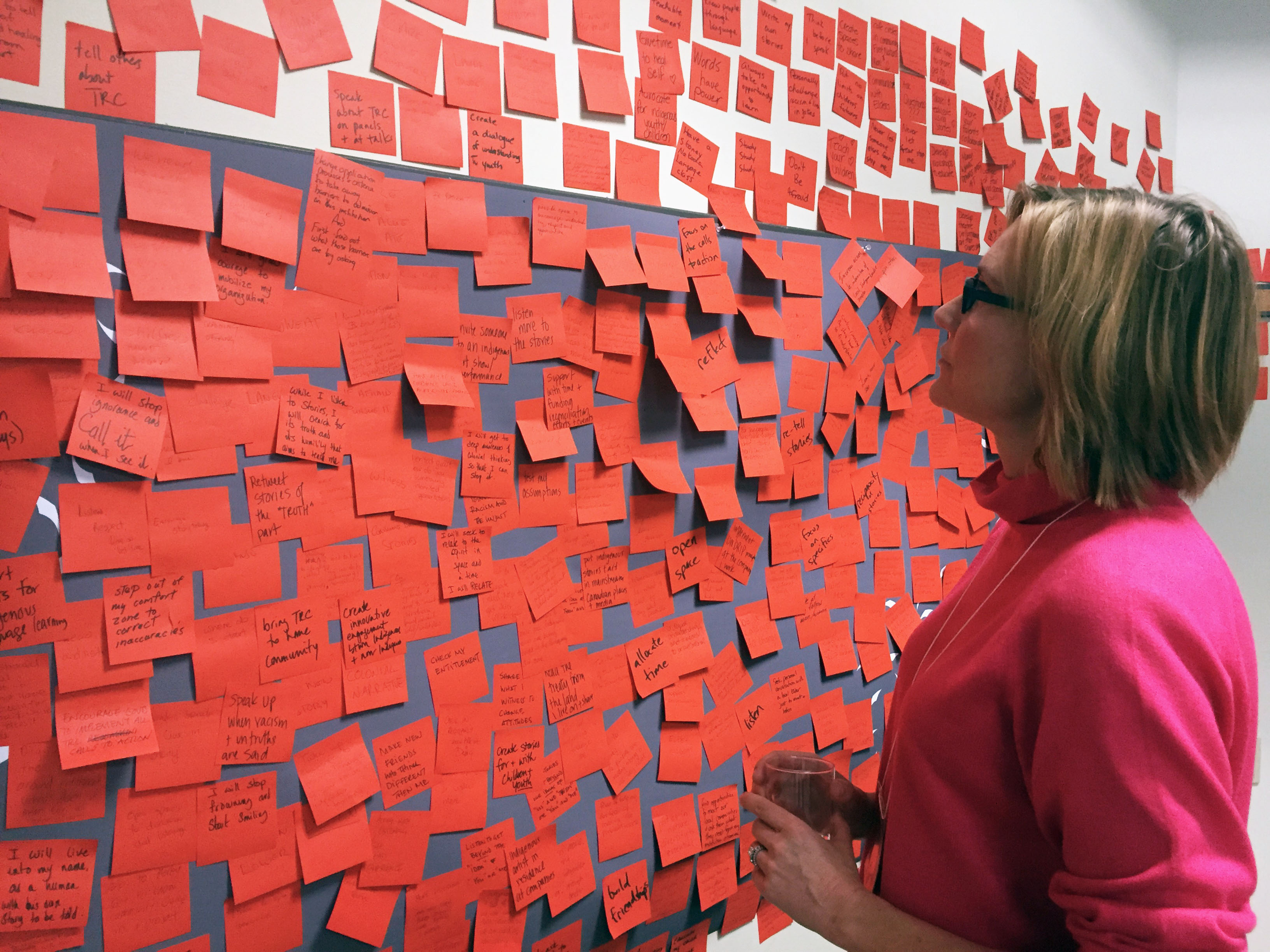
Jesse Wente, Journalist and Broadcaster
Banff Centre Truth and Reconciliation Summit Moderator
"I want to ask you to get comfortable with discomfort. If Canadians want reconciliation, they can’t turn away."
Dizon Ericson, Banff
Banff Centre Truth and Reconciliation Summit Participant
"My action is to never stop learning and teaching until the only narrative we hear is harmony and peace in Canada. It's important for me because my family will be coming over from the Philippines. The reason why I’m very active in the community is because I want them to come into an inclusive society and an inclusive community—a community that fosters love. It may be a utopian dream, but I think we can make it real."
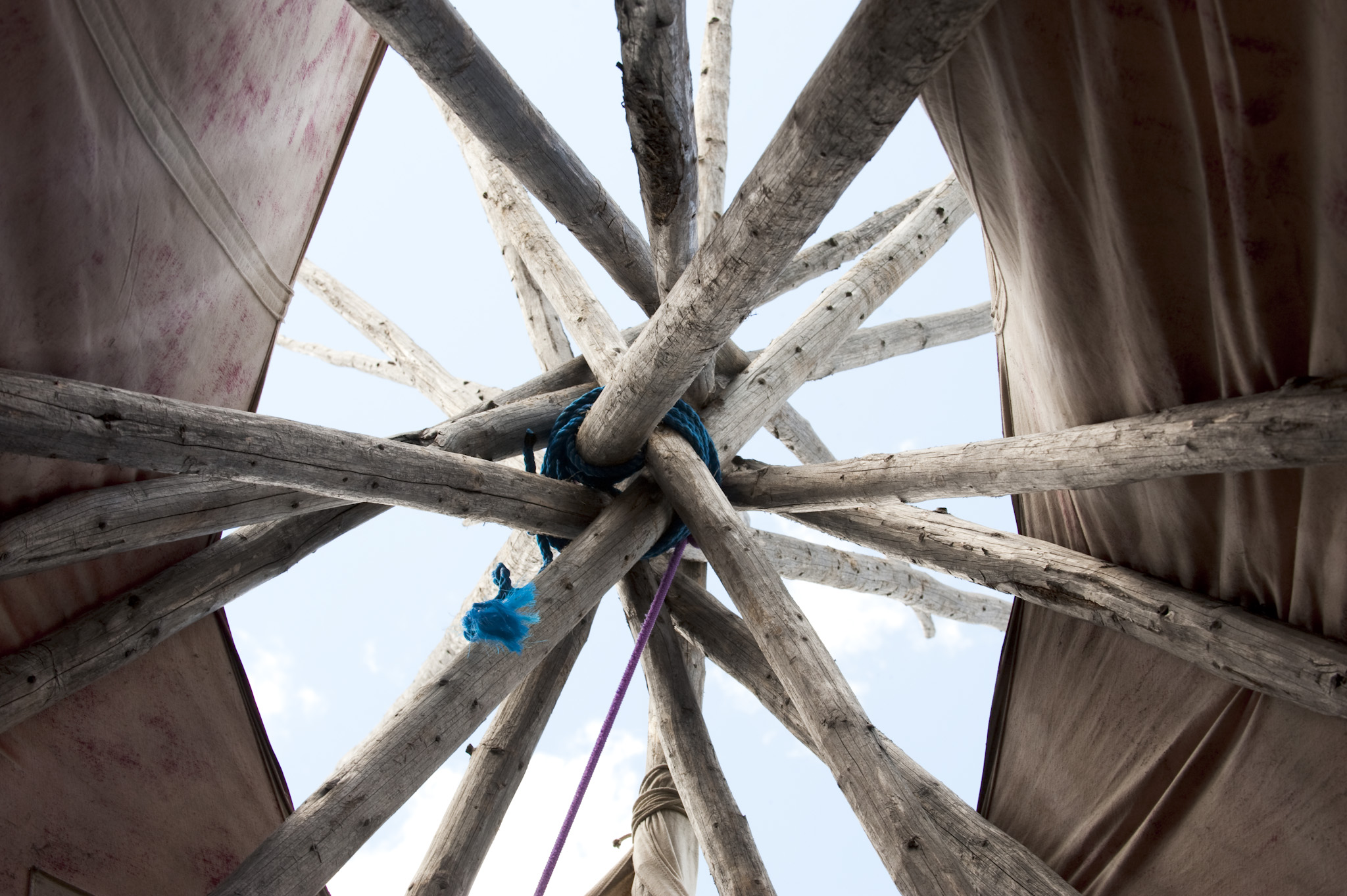
Jackie Ottmann, Calgary + Fishing Lake First Nations, Saskatchewan
Banff Centre Truth and Reconciliation Summit Participant
"I think that reconciliation begins with self. There is reconciling at different levels of our being, and it’s not only until we connect with ourselves at those levels—whether it’s emotionally, spiritually, physically or intellectually—that we can also move into other spaces of reconciliation."
Tricia Young, Morley
Banff Centre Truth and Reconciliation Summit Participant
"I wrote I wanted to bring back leadership and initiative for the next generation. That’s my reconciliation to bring back to my community. That’s what I’ve had in my mind for two or three years now."
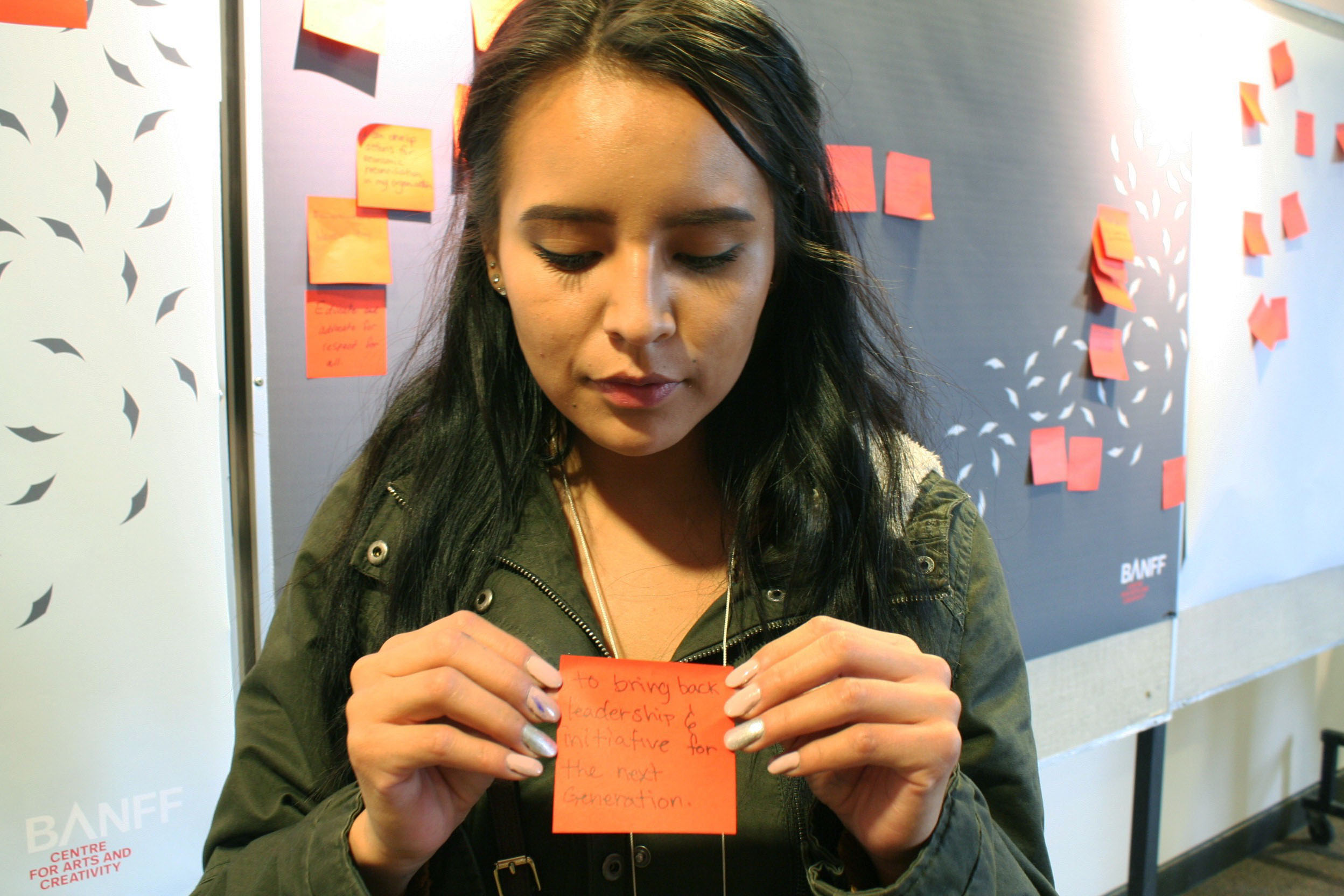
Truth and Reconciliation Summit participant Tricia Young